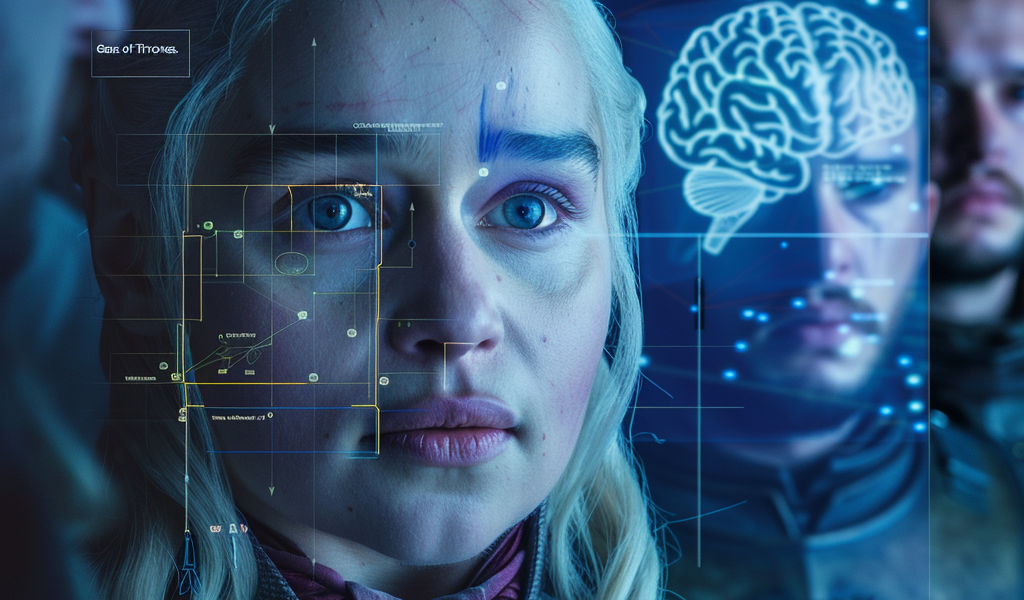Researchers have embarked on a fascinating journey into the realm of facial recognition by utilizing the popular television series, Game of Thrones. This innovative study aims to uncover the complexities of how the human brain recognizes faces, shedding light on prosopagnosia, a neurological condition that affects approximately 1 in 50 individuals, rendering them unable to recognize faces.
The research involved scanning the brains of over 70 participants while they watched selected footage from the iconic series. Participants were divided into two groups: one group consisted of avid fans familiar with the show’s intricate characters, while the other group comprised individuals who had never seen the series. This unique approach allowed researchers to observe variations in brain activity linked to familiar and unfamiliar faces.
As the characters appeared on screen, MRI scans revealed significant differences in brain activity between the two groups. Neurotypical participants who were fans of the show exhibited increased activity in brain regions associated with non-visual knowledge, such as their understanding of the characters’ identities and backgrounds. This suggests that the brain’s recognition of faces is not solely reliant on visual cues but also heavily influenced by personal knowledge and experiences.
Interestingly, the study found that the connections between visual processing areas of the brain and these non-visual regions were notably stronger in fans of Game of Thrones. However, participants who were unfamiliar with the series showed reduced brain activity in these areas, indicating that prior knowledge plays a crucial role in facial recognition.
To further explore the implications of these findings, the researchers conducted a follow-up study involving participants diagnosed with prosopagnosia. This group was also split into those who had seen Game of Thrones and those who had not. The results were telling; individuals with prosopagnosia exhibited a lack of the familiar neural connections that were observed in neurotypical participants. This suggests that their brain’s ability to connect visual information with non-visual knowledge is compromised, further explaining the challenges faced by those with face blindness.
Professor Tim Andrews, a senior author of the study from the Department of Psychology, expressed enthusiasm about the findings. He noted that the results indicate a significant link between familiar knowledge and facial recognition, emphasizing the importance of these connections for social interactions and overall mental health.
The implications of this research extend beyond understanding prosopagnosia. The insights gained could pave the way for new strategies in therapy and support for individuals affected by this condition, highlighting the need for personalized approaches that consider prior knowledge and familiarity.
In summary, this groundbreaking study not only enhances our understanding of facial recognition but also underscores the intricate relationship between memory, knowledge, and social cognition. As researchers continue to delve into the complexities of the human brain, studies like these will undoubtedly contribute to a deeper comprehension of neurological conditions and their impact on daily life.





